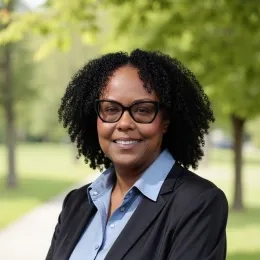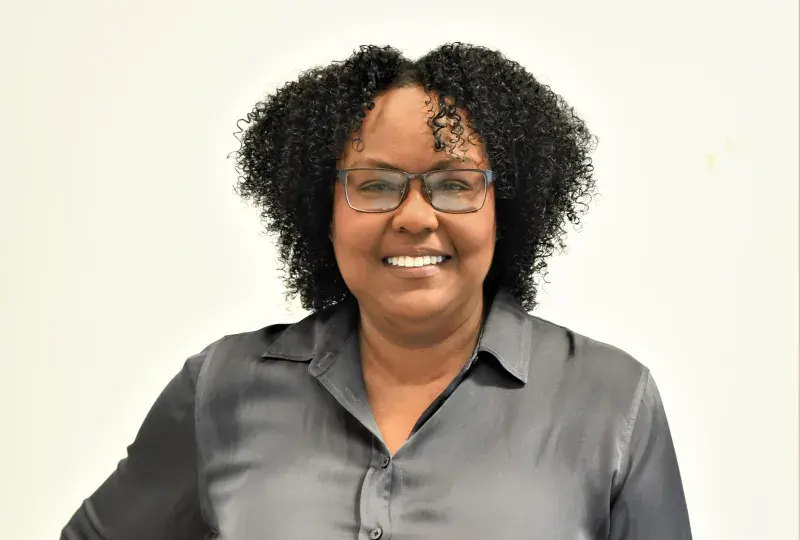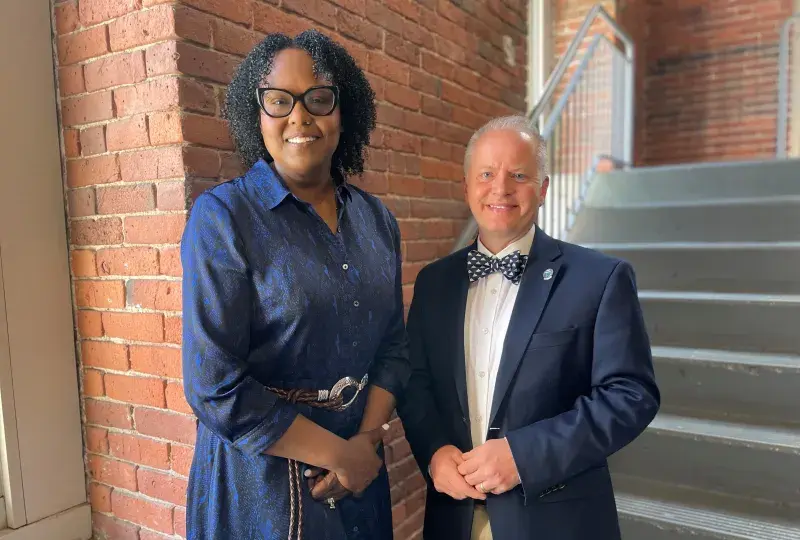
Dr. Eleonor A. Pusey-Reid is a Distinguished Associate Professor of Nursing at the MGH Institute of Health Professions, known for her leadership in nursing education through equity-driven scholarship and a sustained commitment to academic excellence. With a career spanning roles in the United States and Latin America, she has championed diversity and inclusion as core values in teaching-learning, scholarship, and practice.
Internationally, as Dean of Nursing at Universidad Adventista de Centro América in Costa Rica, Dr. Pusey-Reid forged cross-border educational partnerships, enabling dozens of BSN graduates to gain recognition in Panama, strengthening the nursing workforce and improving patient care in the region.
Nationally, her scholarship on inclusive nursing curricula and equity in clinical training has driven meaningful change. She has led pioneering studies examining the representation and assessment of dark skin tones, as well as the use of inclusive language in nursing textbooks, shedding light on bias in educational materials. One of her landmark publications on skin assessment in patients with dark skin tone, published in the American Journal of Nursing in 2023, garnered widespread attention. This work propelled her into a leadership role on the Board of Directors of the National Pressure Injury Advisory Panel (NPIAP), where she helped shape international guidelines to ensure best practices in skin assessment for patients of all skin tones.
Dr. Pusey-Reid also served as a governor-appointed member of the Massachusetts Board of Registration in Nursing (BORN) (2018–2022), overseeing prelicensure nursing programs statewide.
Over her 35-year career, Dr. Pusey-Reid has remained steadfast in her commitment to cultivating inclusive, identity-affirming learning environments, particularly for students from historically marginalized backgrounds. Her work on racial microaggressions in nursing education has informed institutional policy and inspired quality improvement efforts aimed at addressing systemic inequities.
She has co-led initiatives within the MGH Institute’s School of Nursing to support a culture of belonging and success for Black students and other underrepresented groups, combining scholarship with practice-based change. In recognition of her impact, Dr. Pusey-Reid has received numerous honors, including the Inaugural Justice, Equity, Diversity & Inclusion (JEDI) Award at MGH IHP (2022), the Excellence in Leadership Award (Justice, Equity, Diversity & Inclusion) from the New England Regional Black Nurses Association (2021), and a Women of Color STEM Achievement Award (2021). She continues to advance nursing education through her innovative scholarship, international educational collaborations, and unwavering commitment to equity and excellence in nursing education.
- DNP (Doctor of Nursing Practice) – Nursing Education, MGH Institute of Health Professions, Boston, MA (2011)
- MEd (Master of Education) – Instruction & Curriculum, Atlantic Union College, South Lancaster, MA (2003)
- MS (Master of Science) – Adult/Gerontology Clinical Nurse Specialist (with concentration in Nursing Education), Loma Linda University, Loma Linda, CA (1992)
- BS (Bachelor of Science in Nursing), cum laude, Universidad de Montemorelos, Montemorelos, Nuevo León, Mexico (1989)
• Equity in clinical education and assessment
• Nursing education leadership and administration
• Curriculum development and evaluation
• Nursing textbook analysis for inclusive content
• Pressure injury prevention and skin health in diverse populations
• Representation in healthcare education materials
• International Health Nursing Education Initiatives
• Faculty development and mentoring for inclusive teaching
• Racial microaggressions
Dr. Pusey-Reid has published numerous papers - some titles are highlighted below. You can view a complete listing of Dr. Pusey-Reid's publications on ResearchGate or in her CV.
Representation of dark skin tones in foundational nursing textbooks: An image analysis.
Skin assessment in patients with dark skin tone.
Justice, equity, and inclusion in a School of Nursing: A quality improvement program.
The importance of addressing racial microaggression in nursing education.
Microaggressions: Black students’ experiences – A qualitative study.
In addition, Dr. Pusey-Reid regularly presents at conferences and industry events. Please see her CV for a complete list of presentations.
The journey towards social justice and equity in a school of nursing at the American Association of Colleges of Nursing (AACN) Transform 2021 Conference.
Navigating the road to racial justice and equity in a school of nursing: A faculty development program at the National Organization of Nurse Practitioner Faculties (NONPF) 47th Annual Conference.
Microaggression in Nursing: Experiences of Black Nursing Students at Predominantly White Institutions at the 2021 Spring Conference-Massachusetts/Rhode Island League for Nursing (MARILN).
The experience of black students at a predominantly white institution at the 2020 AACN's Diversity Symposium American Association of Colleges of Nursing.
Creating a culture for success: A framework for addressing untapped potential in students at the 2020 Fall Conference-Massachusetts/Rhode Island League for Nursing (MARILN).



